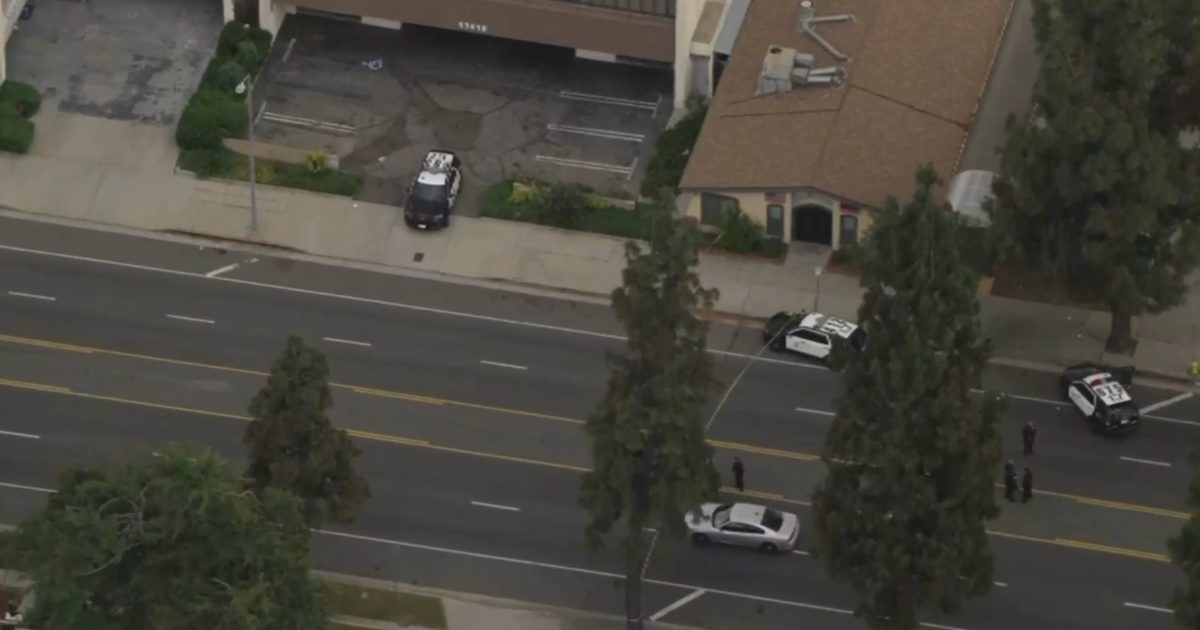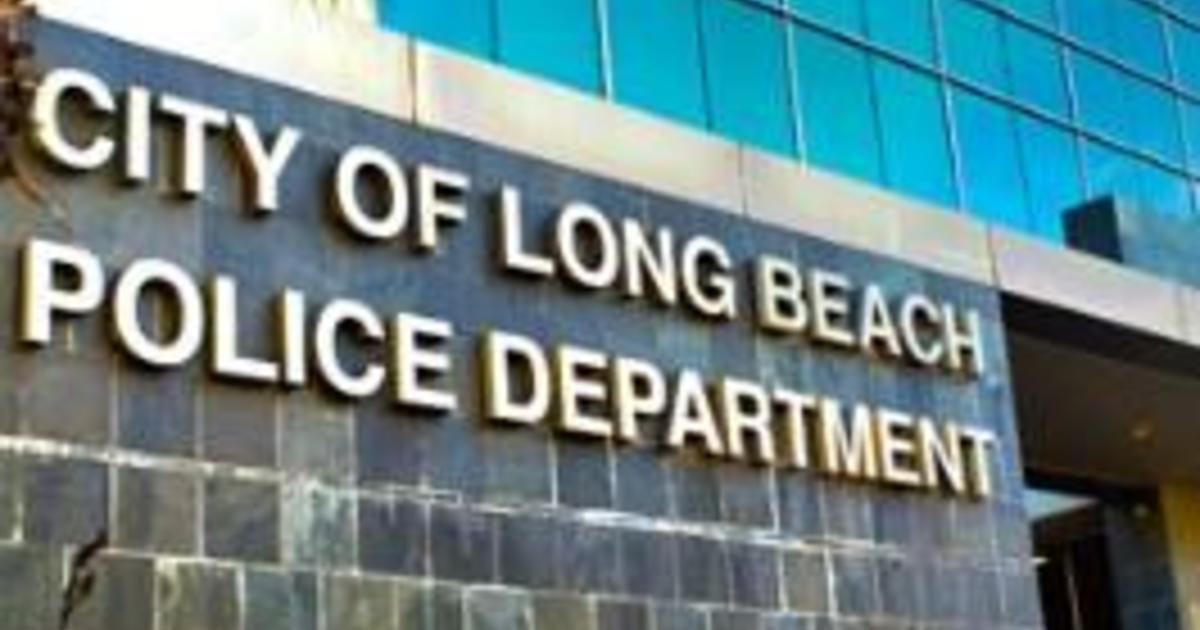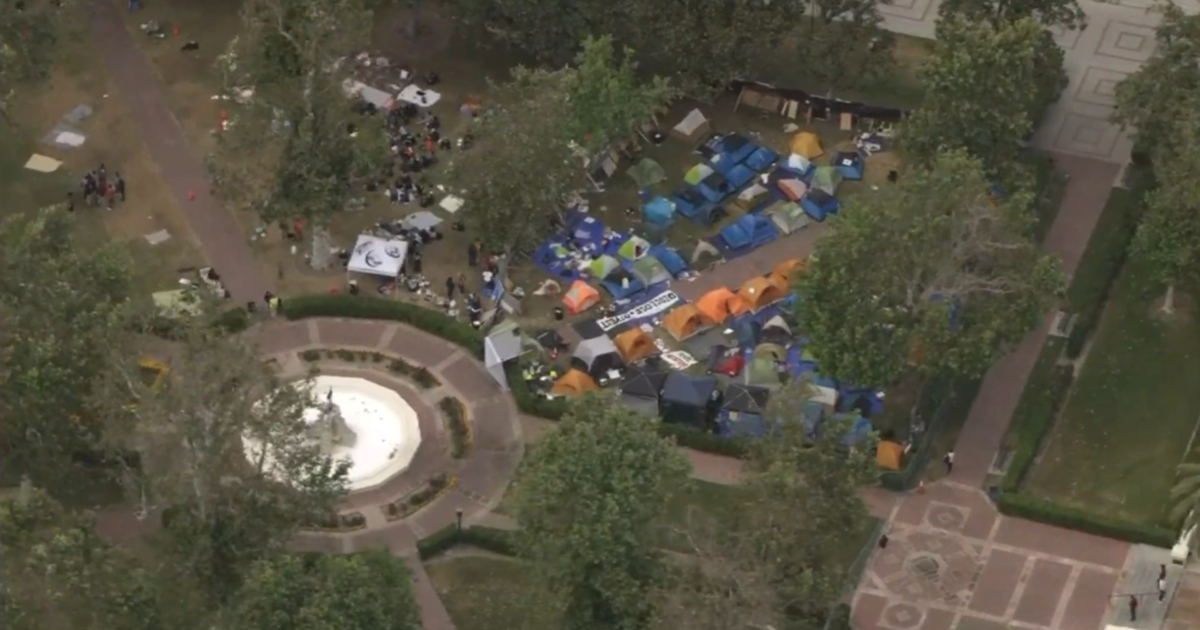California plan aims to triple sale of electric cars by 2026
California wants electric vehicle sales to triple in the next four years to 35% of all new car purchases, an aggressive target set as part of the goal to phase out the sale of gas-powered cars by the middle of next decade.
State officials released a new roadmap to make it happen. Supporters say California will lead the world in reducing planet-warming emissions, but critics say the plans are an overreach.
"Gas went up like crazy," said Brian Williamson, one of many Californians switching from gas-powered to electrum cars.
Williamson says there was a little hesitation making the transition from gas to electric, but the electric Kia Niro was a good price point and the soaring cost of fuel sealed the deal.
"When we did all the numbers, which was very easy to do, we just decided we needed to make the switch now," said Williamson. "It was a good time to do it."
The proposal released late Tuesday by the California Air Resources Board would slowly raise the sale of new cars that are electric, hydrogen-powered or plug-in hybrids to 100% by 2035. About 11% of all new passenger car sales nationally happen in California, giving the state significant influence over the auto market. Californians would still be allowed to drive gas-powered cars and sell used ones, meaning planet-warming emissions will still spew from the state's roadways.
"It sends a signal to the rest of the world that this really is a real thing," said Professor Dan Sperling, a member of the California Air Resources Board.
Governor Gavin Newsom and lawmakers say the goal is to completely phase out the sale of gas-powered cars in the state by 2035. Sperling says electric is affordable.
"Yes, they will cost more than a comparable vehicle. The gap will be shrinking because battery costs are coming down and that's the most important cost differential," said Sperling.
Sperling says lower energy and maintenance costs will also make owning or leasing an electric vehicle more cost effective over time and more state incentives could also be in the pipeline.
"It's a commitment by the state to develop more incentive money to help consumers in these initial years," Sperling said.
Critics say the new guidelines are an overreach in a state that is already too regulated.
"I don't think it should be up to the government what kind of car they drive, especially people who can't go out and afford to buy a Tesla delivered to them tomorrow," said California State Representative Kevin Kiley. "That's why these very high gas prices are such a burden."
The hoped-for boost in electric vehicle sales will also require a major increase in charging stations. California has set a goal of 250,000 charging stations by 2025, and right now there are fewer than 80,000 stations in public spaces or in parking lots at office buildings, apartment buildings and other shared spaces. The California Energy Commission last year approved spending $314 million over three years for passenger car charging stations and Newsom added more in his proposed state budget.
"Overall once you do get into an electric car and you can figure out the superfast chargers, you'll see how how much more efficient it is overall," said Williamson
The release kicks off a months-long state review process and the plan requires approval from the U.S. Environmental Protection Agency. The state is unlikely to face resistance from a Democratic White House. The Biden administration recently restored California's power to set its own vehicle emissions standards under the Clean Air Act and the president has committed $5 billion to build more charging stations around the country.
A group representing the auto industry said meeting the requirements will be "extremely challenging."
Emissions spewed from gas-powered passenger vehicles make up about a quarter of the state's total greenhouse gas emissions — more than any other single source, according to the state air board. The program is just one part of California's efforts to drastically reduce carbon emissions. Between 2026 and 2040, state experts estimate the program would lower emissions by nearly 384 million metric tons of carbon dioxide equivalent annually. That's a little less than all the emissions across California's economy in a single year.
California has established some of the nation's most aggressive climate policies and is the first state in the country that's created a roadmap for transitioning to zero-emission vehicles. Washington Gov. Jay Inslee signed a law last month setting a goal of requiring all new vehicles in the state to be electric by 2030, but regulators have until the end of 2023 to say how the state will get there.
California's rules would require 35% of new car sales for model year 2026 to be zero-emission vehicles, including battery or hydrogen powered, or plug-in electric hybrids. That's a sharp increase from 2021, when about 12% of all cars sold in the state were zero-emission, according to the air board. About 1 million of the 26 million cars currently on California roads are zero-emission.
That requirement ramps up to 100% of all new sales by 2035. New gas-powered cars wouldn't be completely banned; up to 20% of sales by 2035 could be plug-in hybrids that run on a combination of battery and gas power, though the regulations boost how far such cars must be able to travel on battery power alone.
Major automakers including Ford and Toyota deferred to the Alliance for Automotive Innovation, an industry group, for a statement on the proposal. The group says the industry is "committed to electrification and a net-zero carbon transportation future" but raised questions about the drastic ramp up in the required zero-emission vehicle sales.
"Automakers will certainly work to meet whatever standards are eventually adopted, but these draft requirements will be extremely challenging even in California and may not be achievable in all the states that currently follow California's program," the group said.
Nine states follow California's current zero-emission vehicle rules, which set rules through model year 2025. Five other states are set to start following California's rules for future years. If the federal government approves California's new plan, the other states would have to decide whether to follow suit. New York also aims to phase out gas powered vehicles by 2035.
The regulations also require electric vehicles to get at least 150 miles (241 kilometers) per charge, up from 50 miles (80 kilometers), though most manufacturers exceed that. They establish an eight-year or 100,000-mile (161,000-kilometer) battery warranty.
Every carmaker that sells in California — currently 17 — would be required to hit the 35% sales mark. But car sales can be unpredictable and the rules have wiggle room. California's existing electric vehicle standards let companies save credits if they sell a higher percentage of electric cars than required, and those credits can be used later to meet sales goals.
Companies can also make deals with each other to count each other's sales as their own. Electric-vehicle maker Tesla has made such deals with many automakers in the past, state officials said.



